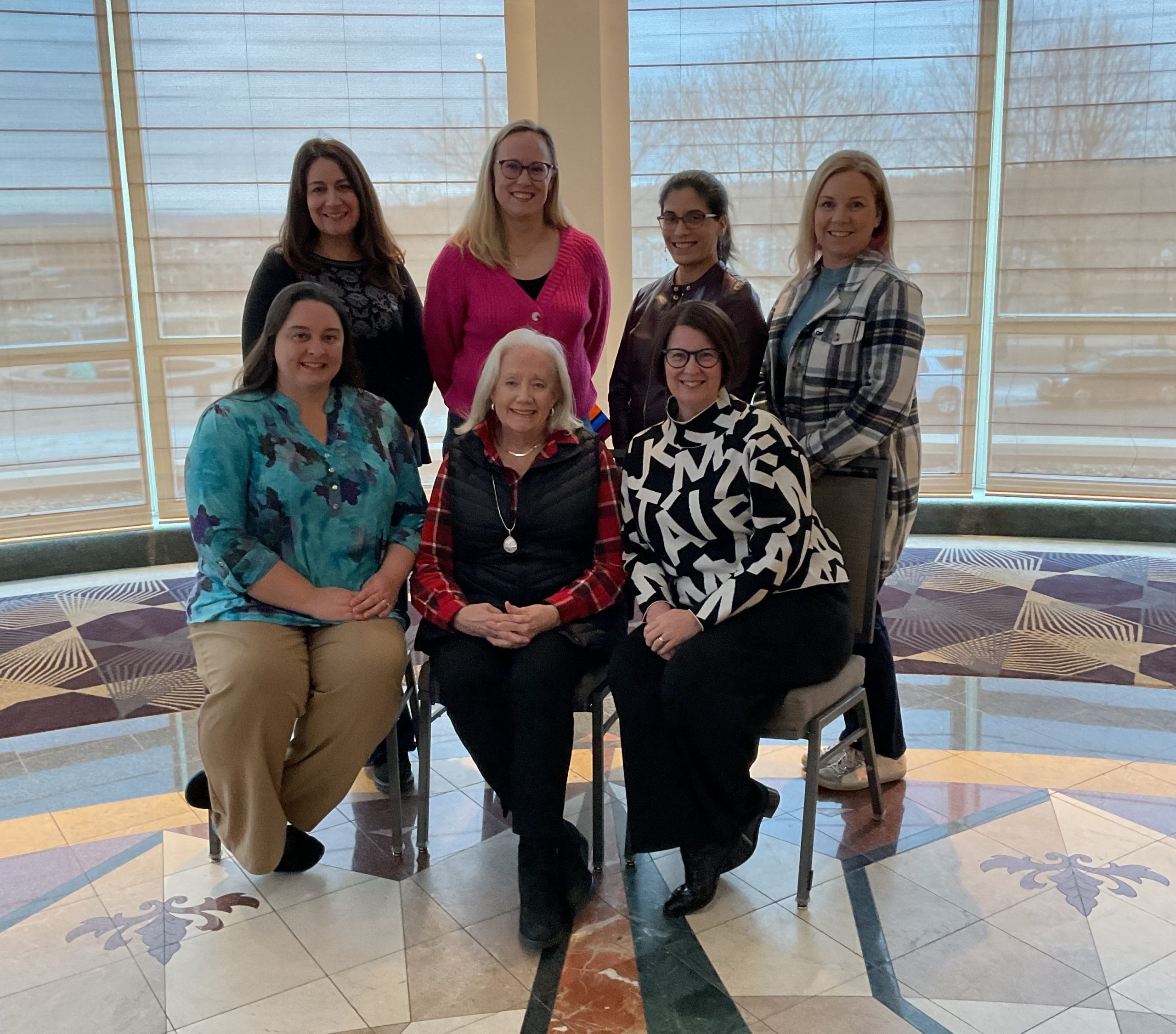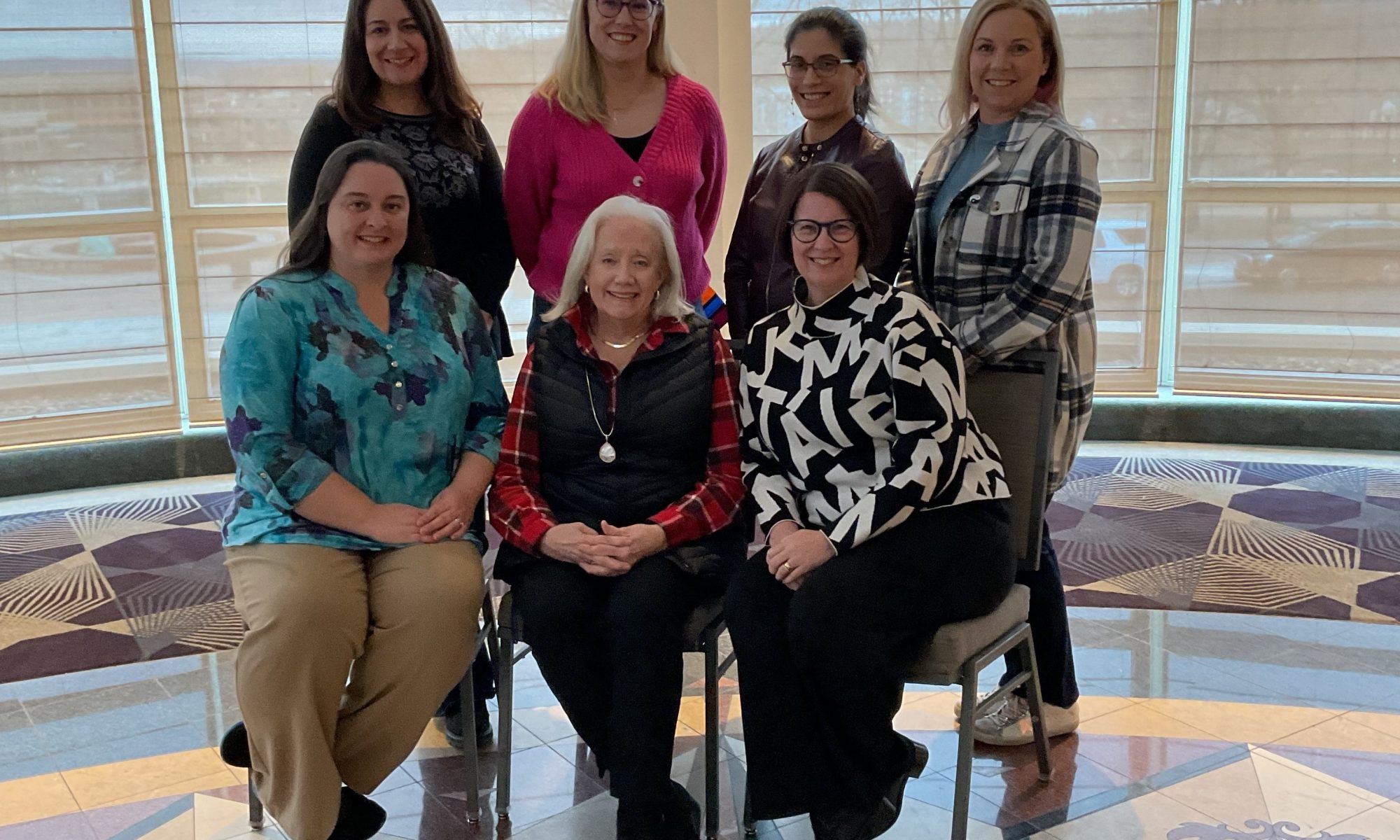Each year the incoming CLI board gathers the morning of the retreat to set goals and discuss action items for the coming year. Members are invited to then join the Board for for an afternoon session of discussion. The incoming President sets the agenda and direction of the full day retreat.
Date: Friday, January 12, 2024
Location: Due to Snow warnings, the Board has switched the Retreat from
in-person to VIRTUAL ONLY!
ZOOM LOGIN:
https://us02web.zoom.us/j/89824064633
Meeting ID: 898 2406 4633
Time:
Board Members login at 8:50 AM for 9AM meeting start.
Members login at 1PM for Board and Members afternoon session.
Fee: No fee to attend. Just login.
Who should attend: Members and annual sponsors of CLI.
For questions on registration contact: Sandy Beeson: cli@collaborativelaw.org
or Judy Johnson | judith_h_johnson@hotmail.com
 Children deserve the best, safe parenting they can get from both their parents. This is a fundamental guiding principle for my work as a neutral child specialist. It sounds intuitiveand obvious. But in the context of separation and divorce, what do these words really mean?
Let’s start with the word deserve. Deserve can imply earned by merit. It can also imply entitlement and privilege by virtue of rank. But neither is an accurate definition in this context. The birthright of children with the benefit of having two competent and caring parents is to be nurtured, guided and unconditionally loved by both. Regardless of the status of the relationship between their parents.
What does best mean? Not “we’re #1,” not competitively better than any other parents in our kid’s play group, not striving for perfection. Best is what describes responsive, mindful, attuned, child-focused parenting. Setting expectations that allow kids to achieve mastery without becoming overwhelmed. Understanding that your child’s needs and perspectives are different than your own, and not suppressing his or her individuality. Staying centered and finding resources to help manage your own emotions to model how to handle hard times without falling apart. Even during a painful separation or divorce.
That leaves the word safe. What is safe parenting? Safe parenting does not mean that children will never experience pain, disappointment, loss, sadness or anxiety. It means that when hard times come, parents turn toward and never away from their children and provide consistent empathy and support. Safe parenting is clear-headed, not distracted or addicted. Safe parenting requires good boundaries, emotionally as well as physically; children do not exist to meet the needs of their parents. Safe parenting means that kids never belong in the middle of conflicts between parents, even when parents are experiencing the distress of a separation or divorce. Safe parenting means children do not feel abandoned.
Parents’ actions and words create narratives and expectations children will carry throughout their lives. These stories define self-worth and can make or break a sense of hope for the future. Creating child-focused, developmentally appropriate parenting plan is one way to ensure your children’s narrative of divorce includes the best, safe parenting for them as they head into the future.
Children deserve the best, safe parenting they can get from both their parents. This is a fundamental guiding principle for my work as a neutral child specialist. It sounds intuitiveand obvious. But in the context of separation and divorce, what do these words really mean?
Let’s start with the word deserve. Deserve can imply earned by merit. It can also imply entitlement and privilege by virtue of rank. But neither is an accurate definition in this context. The birthright of children with the benefit of having two competent and caring parents is to be nurtured, guided and unconditionally loved by both. Regardless of the status of the relationship between their parents.
What does best mean? Not “we’re #1,” not competitively better than any other parents in our kid’s play group, not striving for perfection. Best is what describes responsive, mindful, attuned, child-focused parenting. Setting expectations that allow kids to achieve mastery without becoming overwhelmed. Understanding that your child’s needs and perspectives are different than your own, and not suppressing his or her individuality. Staying centered and finding resources to help manage your own emotions to model how to handle hard times without falling apart. Even during a painful separation or divorce.
That leaves the word safe. What is safe parenting? Safe parenting does not mean that children will never experience pain, disappointment, loss, sadness or anxiety. It means that when hard times come, parents turn toward and never away from their children and provide consistent empathy and support. Safe parenting is clear-headed, not distracted or addicted. Safe parenting requires good boundaries, emotionally as well as physically; children do not exist to meet the needs of their parents. Safe parenting means that kids never belong in the middle of conflicts between parents, even when parents are experiencing the distress of a separation or divorce. Safe parenting means children do not feel abandoned.
Parents’ actions and words create narratives and expectations children will carry throughout their lives. These stories define self-worth and can make or break a sense of hope for the future. Creating child-focused, developmentally appropriate parenting plan is one way to ensure your children’s narrative of divorce includes the best, safe parenting for them as they head into the future.
With the holidays upon us, most of us are getting ready for gatherings with family and  friends and figuring out who is hosting which holiday. Many families have traditions that may go back generations. As parents, we may choose to keep those traditions or create new ones. One of my family traditions was my grandmother’s cranberry marshmallow salad. I have her recipe, helped her make it when I was a little girl, but I just can’t recreate it on my own. No matter how much sugar I add, it’s too tart; sadly, I might just need to let this tradition go. (Unlike the shredded carrot and jello salad many of us grew up with, this cranberry salad really was fabulous!) I discovered and revised a cranberry sauce that my kids actually eat, so that has become part of our Thanksgiving tradition. While she is no longer with us and I miss her terribly, I suspect my grandmother would be just fine with my new creation.
Whether your traditions are about food, going to Grandma’s every Thanksgiving or stopping by for dessert at Uncle Jim’s Christmas Day, traditions are part of who we are. For families experiencing separation and divorce, it’s important to try to maintain those traditions. A new normal, along with new traditions, will eventually emerge, but if your kids love going to your in-laws because Uncle John makes the best peach pie ever and Santa makes a special appearance for the little ones – thanks to Uncle Al – please maintain those traditions for your kids. While you might not want to spend the holidays with your (former) spouse and his or her family, based on what clients have told me, consider the following: 1) share the holidays, rather than trying to keep them all to yourself, so your kids can enjoy those special traditions (who doesn’t love spending time with all the aunts, uncles, and cousins? On both sides of the family?) and 2) consider spending the holidays with your former spouse at some point in the future. Sounds crazy, right? No…your kids would love it! While it is probably the furthest thing from your mind right now and might not happen for some time, parents who are able to step up for the benefit of their kids are glad they were able to come together as co-parents and enjoy their children together. And if you have had a good relationship with your in-laws in the past, chances are, you will have a pleasant time, too. ‘Tis the season for giving…and you will definitely be giving your kids a wonderful gift.
friends and figuring out who is hosting which holiday. Many families have traditions that may go back generations. As parents, we may choose to keep those traditions or create new ones. One of my family traditions was my grandmother’s cranberry marshmallow salad. I have her recipe, helped her make it when I was a little girl, but I just can’t recreate it on my own. No matter how much sugar I add, it’s too tart; sadly, I might just need to let this tradition go. (Unlike the shredded carrot and jello salad many of us grew up with, this cranberry salad really was fabulous!) I discovered and revised a cranberry sauce that my kids actually eat, so that has become part of our Thanksgiving tradition. While she is no longer with us and I miss her terribly, I suspect my grandmother would be just fine with my new creation.
Whether your traditions are about food, going to Grandma’s every Thanksgiving or stopping by for dessert at Uncle Jim’s Christmas Day, traditions are part of who we are. For families experiencing separation and divorce, it’s important to try to maintain those traditions. A new normal, along with new traditions, will eventually emerge, but if your kids love going to your in-laws because Uncle John makes the best peach pie ever and Santa makes a special appearance for the little ones – thanks to Uncle Al – please maintain those traditions for your kids. While you might not want to spend the holidays with your (former) spouse and his or her family, based on what clients have told me, consider the following: 1) share the holidays, rather than trying to keep them all to yourself, so your kids can enjoy those special traditions (who doesn’t love spending time with all the aunts, uncles, and cousins? On both sides of the family?) and 2) consider spending the holidays with your former spouse at some point in the future. Sounds crazy, right? No…your kids would love it! While it is probably the furthest thing from your mind right now and might not happen for some time, parents who are able to step up for the benefit of their kids are glad they were able to come together as co-parents and enjoy their children together. And if you have had a good relationship with your in-laws in the past, chances are, you will have a pleasant time, too. ‘Tis the season for giving…and you will definitely be giving your kids a wonderful gift.
 friends and figuring out who is hosting which holiday. Many families have traditions that may go back generations. As parents, we may choose to keep those traditions or create new ones. One of my family traditions was my grandmother’s cranberry marshmallow salad. I have her recipe, helped her make it when I was a little girl, but I just can’t recreate it on my own. No matter how much sugar I add, it’s too tart; sadly, I might just need to let this tradition go. (Unlike the shredded carrot and jello salad many of us grew up with, this cranberry salad really was fabulous!) I discovered and revised a cranberry sauce that my kids actually eat, so that has become part of our Thanksgiving tradition. While she is no longer with us and I miss her terribly, I suspect my grandmother would be just fine with my new creation.
Whether your traditions are about food, going to Grandma’s every Thanksgiving or stopping by for dessert at Uncle Jim’s Christmas Day, traditions are part of who we are. For families experiencing separation and divorce, it’s important to try to maintain those traditions. A new normal, along with new traditions, will eventually emerge, but if your kids love going to your in-laws because Uncle John makes the best peach pie ever and Santa makes a special appearance for the little ones – thanks to Uncle Al – please maintain those traditions for your kids. While you might not want to spend the holidays with your (former) spouse and his or her family, based on what clients have told me, consider the following: 1) share the holidays, rather than trying to keep them all to yourself, so your kids can enjoy those special traditions (who doesn’t love spending time with all the aunts, uncles, and cousins? On both sides of the family?) and 2) consider spending the holidays with your former spouse at some point in the future. Sounds crazy, right? No…your kids would love it! While it is probably the furthest thing from your mind right now and might not happen for some time, parents who are able to step up for the benefit of their kids are glad they were able to come together as co-parents and enjoy their children together. And if you have had a good relationship with your in-laws in the past, chances are, you will have a pleasant time, too. ‘Tis the season for giving…and you will definitely be giving your kids a wonderful gift.
friends and figuring out who is hosting which holiday. Many families have traditions that may go back generations. As parents, we may choose to keep those traditions or create new ones. One of my family traditions was my grandmother’s cranberry marshmallow salad. I have her recipe, helped her make it when I was a little girl, but I just can’t recreate it on my own. No matter how much sugar I add, it’s too tart; sadly, I might just need to let this tradition go. (Unlike the shredded carrot and jello salad many of us grew up with, this cranberry salad really was fabulous!) I discovered and revised a cranberry sauce that my kids actually eat, so that has become part of our Thanksgiving tradition. While she is no longer with us and I miss her terribly, I suspect my grandmother would be just fine with my new creation.
Whether your traditions are about food, going to Grandma’s every Thanksgiving or stopping by for dessert at Uncle Jim’s Christmas Day, traditions are part of who we are. For families experiencing separation and divorce, it’s important to try to maintain those traditions. A new normal, along with new traditions, will eventually emerge, but if your kids love going to your in-laws because Uncle John makes the best peach pie ever and Santa makes a special appearance for the little ones – thanks to Uncle Al – please maintain those traditions for your kids. While you might not want to spend the holidays with your (former) spouse and his or her family, based on what clients have told me, consider the following: 1) share the holidays, rather than trying to keep them all to yourself, so your kids can enjoy those special traditions (who doesn’t love spending time with all the aunts, uncles, and cousins? On both sides of the family?) and 2) consider spending the holidays with your former spouse at some point in the future. Sounds crazy, right? No…your kids would love it! While it is probably the furthest thing from your mind right now and might not happen for some time, parents who are able to step up for the benefit of their kids are glad they were able to come together as co-parents and enjoy their children together. And if you have had a good relationship with your in-laws in the past, chances are, you will have a pleasant time, too. ‘Tis the season for giving…and you will definitely be giving your kids a wonderful gift.
About 3 and a-half years ago, a family in the Collaborative Divorce process was working with the Neutral Child Specialist . It was stated by my client that dad’s alcohol use was the primary basis for her seeking the divorce. She couldn’t take it anymore. She had been involved in Al-Anon and working on no longer being codependent and practicing stronger boundaries. Dad denied that he had any problems. Mom wanted their teenage daughter to have a relationship with her dad, but wanted it to be a healthy relationship that didn’t put her at risk. What came out in the work with the daughter was that she experienced her dad drinking and driving and she only wanted to spend time with dad when she felt safe.  During the process of creating the parenting plan, the Neutral Child Specialist arranged for a meeting the parents both agreed to attend in which it could be determined, and possibly ruled out, whether dad did have any problems with substance abuse. This happened because of how the team of lawyers and professionals worked together thinking about the greater good of the family system. But at the meeting dad wasn’t ready to hear it, and again said he had things under control.
So, a parenting plan was created that gave daughter the opportunity to have time with her dad in smaller chunks of time, but have a mechanism in place to end the time if she ever felt at risk. Mom could also say no to time if she had a basis to say that dad was under the influence. They created details that both parents, and their child, felt comfortable with because they could focus on what was needed for the child to feel safe as well as the importance of the parent-child relationships.
After the divorce, about a year later, I received a note from her client. She said that dad was finally pursuing treatment with the two professionals the Neutral Child Specialist had arranged the meeting with during the work on the parenting plan. She said that dad finally hit bottom and was ready to begin his recovery.
When I look back on this case, I believe that a seed was planted and a relationship was started with people that dad could finally hold his hand out to for help when he was ready. And, because you can not force someone to make change before they are ready, a parenting plan was created that was responsive to the needs of the child. The dad was not dragged through the mud and vilified, and denied access to his child. Rather, a child responsive plan was put in place and now this family is on a better path.
The mom said in a note to me, “I really appreciate the entire collaborative team. The support through this most difficult time was immeasurably helpful. I found [your] and the team’s understanding, when dealing with a substance abuse spouse, extremely insightful. [The Neutral Child Specialist] was direct, yet kind in dealing with both [dad] and myself. The entire team had our daughter’s interests at the forefront. [Dad’s] attorney also was helpful in this aspect, aware of the pitfalls in dealing with an alcoholic….thank you…in helping me through this, supporting my goals and providing a positive environment.”
During the process of creating the parenting plan, the Neutral Child Specialist arranged for a meeting the parents both agreed to attend in which it could be determined, and possibly ruled out, whether dad did have any problems with substance abuse. This happened because of how the team of lawyers and professionals worked together thinking about the greater good of the family system. But at the meeting dad wasn’t ready to hear it, and again said he had things under control.
So, a parenting plan was created that gave daughter the opportunity to have time with her dad in smaller chunks of time, but have a mechanism in place to end the time if she ever felt at risk. Mom could also say no to time if she had a basis to say that dad was under the influence. They created details that both parents, and their child, felt comfortable with because they could focus on what was needed for the child to feel safe as well as the importance of the parent-child relationships.
After the divorce, about a year later, I received a note from her client. She said that dad was finally pursuing treatment with the two professionals the Neutral Child Specialist had arranged the meeting with during the work on the parenting plan. She said that dad finally hit bottom and was ready to begin his recovery.
When I look back on this case, I believe that a seed was planted and a relationship was started with people that dad could finally hold his hand out to for help when he was ready. And, because you can not force someone to make change before they are ready, a parenting plan was created that was responsive to the needs of the child. The dad was not dragged through the mud and vilified, and denied access to his child. Rather, a child responsive plan was put in place and now this family is on a better path.
The mom said in a note to me, “I really appreciate the entire collaborative team. The support through this most difficult time was immeasurably helpful. I found [your] and the team’s understanding, when dealing with a substance abuse spouse, extremely insightful. [The Neutral Child Specialist] was direct, yet kind in dealing with both [dad] and myself. The entire team had our daughter’s interests at the forefront. [Dad’s] attorney also was helpful in this aspect, aware of the pitfalls in dealing with an alcoholic….thank you…in helping me through this, supporting my goals and providing a positive environment.”
 During the process of creating the parenting plan, the Neutral Child Specialist arranged for a meeting the parents both agreed to attend in which it could be determined, and possibly ruled out, whether dad did have any problems with substance abuse. This happened because of how the team of lawyers and professionals worked together thinking about the greater good of the family system. But at the meeting dad wasn’t ready to hear it, and again said he had things under control.
So, a parenting plan was created that gave daughter the opportunity to have time with her dad in smaller chunks of time, but have a mechanism in place to end the time if she ever felt at risk. Mom could also say no to time if she had a basis to say that dad was under the influence. They created details that both parents, and their child, felt comfortable with because they could focus on what was needed for the child to feel safe as well as the importance of the parent-child relationships.
After the divorce, about a year later, I received a note from her client. She said that dad was finally pursuing treatment with the two professionals the Neutral Child Specialist had arranged the meeting with during the work on the parenting plan. She said that dad finally hit bottom and was ready to begin his recovery.
When I look back on this case, I believe that a seed was planted and a relationship was started with people that dad could finally hold his hand out to for help when he was ready. And, because you can not force someone to make change before they are ready, a parenting plan was created that was responsive to the needs of the child. The dad was not dragged through the mud and vilified, and denied access to his child. Rather, a child responsive plan was put in place and now this family is on a better path.
The mom said in a note to me, “I really appreciate the entire collaborative team. The support through this most difficult time was immeasurably helpful. I found [your] and the team’s understanding, when dealing with a substance abuse spouse, extremely insightful. [The Neutral Child Specialist] was direct, yet kind in dealing with both [dad] and myself. The entire team had our daughter’s interests at the forefront. [Dad’s] attorney also was helpful in this aspect, aware of the pitfalls in dealing with an alcoholic….thank you…in helping me through this, supporting my goals and providing a positive environment.”
During the process of creating the parenting plan, the Neutral Child Specialist arranged for a meeting the parents both agreed to attend in which it could be determined, and possibly ruled out, whether dad did have any problems with substance abuse. This happened because of how the team of lawyers and professionals worked together thinking about the greater good of the family system. But at the meeting dad wasn’t ready to hear it, and again said he had things under control.
So, a parenting plan was created that gave daughter the opportunity to have time with her dad in smaller chunks of time, but have a mechanism in place to end the time if she ever felt at risk. Mom could also say no to time if she had a basis to say that dad was under the influence. They created details that both parents, and their child, felt comfortable with because they could focus on what was needed for the child to feel safe as well as the importance of the parent-child relationships.
After the divorce, about a year later, I received a note from her client. She said that dad was finally pursuing treatment with the two professionals the Neutral Child Specialist had arranged the meeting with during the work on the parenting plan. She said that dad finally hit bottom and was ready to begin his recovery.
When I look back on this case, I believe that a seed was planted and a relationship was started with people that dad could finally hold his hand out to for help when he was ready. And, because you can not force someone to make change before they are ready, a parenting plan was created that was responsive to the needs of the child. The dad was not dragged through the mud and vilified, and denied access to his child. Rather, a child responsive plan was put in place and now this family is on a better path.
The mom said in a note to me, “I really appreciate the entire collaborative team. The support through this most difficult time was immeasurably helpful. I found [your] and the team’s understanding, when dealing with a substance abuse spouse, extremely insightful. [The Neutral Child Specialist] was direct, yet kind in dealing with both [dad] and myself. The entire team had our daughter’s interests at the forefront. [Dad’s] attorney also was helpful in this aspect, aware of the pitfalls in dealing with an alcoholic….thank you…in helping me through this, supporting my goals and providing a positive environment.”
There was a recent article in the Los Angeles Times addressing the growing rate of divorce in later years of marriage. The article summarizes statistics showing this is a large segment of the divorcing population. And it continues to increase. The article outlines a number of potential reasons for this growing phenomenon:
The article outlines a number of potential reasons for this growing phenomenon:
 The article outlines a number of potential reasons for this growing phenomenon:
The article outlines a number of potential reasons for this growing phenomenon:
- As people live longer, there is more years after the children leave the home and retirement to enjoy life. People find themselves less likely to be complacent and stay in an unhappy relationship that could last for 20 or more years.
- As the retiring generation has found more financial success, there are more resources available in later years allowing individuals to feel more comfortable living independently. They also have more resources to enjoy their lives.
- Empty nest is a time when parents focus no longer points towards the children and it may coincide with having lost connection with the spouse. So many years of dedication to the children can lead to less time to focus on the marriage. Once the children leave, there may no longer be a functional marriage.
- Parents feel that adult children may cope better with divorce as they have their own lives and means.
- Societal comfort and acceptance of divorce has made it more tangible for older adults.
I once heard that parenting books are one of the largest segments in non-fiction  publishing. Everyone apparently thinks they have tips and ideas to help others parent. As a collaborative divorce attorney, clients often seek guidance and support in co-parenting during and after the divorce. No book ever fits the bill. While traditional books may offer some guidance, co-parenting after divorce is a unique situation. Not only do children sometimes have challenges as the result of the divorce, parents too are transitioning into a new reality.
In collaborative divorce, we often work with a family specialist or child specialist to help families transition from one home, into two. This neutral party can assist in many aspects of parenting, including the following:
publishing. Everyone apparently thinks they have tips and ideas to help others parent. As a collaborative divorce attorney, clients often seek guidance and support in co-parenting during and after the divorce. No book ever fits the bill. While traditional books may offer some guidance, co-parenting after divorce is a unique situation. Not only do children sometimes have challenges as the result of the divorce, parents too are transitioning into a new reality.
In collaborative divorce, we often work with a family specialist or child specialist to help families transition from one home, into two. This neutral party can assist in many aspects of parenting, including the following:
 publishing. Everyone apparently thinks they have tips and ideas to help others parent. As a collaborative divorce attorney, clients often seek guidance and support in co-parenting during and after the divorce. No book ever fits the bill. While traditional books may offer some guidance, co-parenting after divorce is a unique situation. Not only do children sometimes have challenges as the result of the divorce, parents too are transitioning into a new reality.
In collaborative divorce, we often work with a family specialist or child specialist to help families transition from one home, into two. This neutral party can assist in many aspects of parenting, including the following:
publishing. Everyone apparently thinks they have tips and ideas to help others parent. As a collaborative divorce attorney, clients often seek guidance and support in co-parenting during and after the divorce. No book ever fits the bill. While traditional books may offer some guidance, co-parenting after divorce is a unique situation. Not only do children sometimes have challenges as the result of the divorce, parents too are transitioning into a new reality.
In collaborative divorce, we often work with a family specialist or child specialist to help families transition from one home, into two. This neutral party can assist in many aspects of parenting, including the following:
- Coach parents on telling the children about divorce.
- Bring the children’s voice to the process by hearing their concerns and hopes and communicating them to the parents.
- Communication coaching.
- Developing a parenting plan and schedule for parenting in two homes.
- How to maintain relationships with extended family.
- Consulting after divorce as new things arise.
- Periodic check-ins on parenting and child development.
- Any other parenting challenge that arises during or after the divorce.
Remember hearing that as a child? I do. I said it. I believed it. And then I didn’t. Names DO hurt, even if they aren’t “really bad, mean names.” They can burn a memory into your brain that can haunt you. My son, who is six, is one of the younger children in his 1st grade class. Next to his 2nd grade soccer buddies, he’s a bit vertically challenged, although he’s considered “average” in height. Nonetheless, when he came home in tears the other day because an older child called him “shorty,” he undoubtedly felt the sting of name-calling. Welcome to the real world, my sweet, darling son! We have all experienced it, to some extent, and it stinks. Rather than utter that renowned phrase to my son, my collaboratively-trained lawyer brain went into “better-get-more-information” mode. The conversation went like this:
Me: How did that make you feel when he said that?
Son: Sad.
Me: Mmmmm….I can see that…
Son: And angry…
Me: Definitely! (Pause). So, what happened next?
Son: (without missing a beat) I grabbed the ball out of his hands, dribbled it down the court, and made a basket.
Me: (Stunned!) Wow! That is AMAZING! (Beaming with pride…that’s my boy!)
So, my son “shows up” this kid by making a basket, yet he was still upset (hours?) later and recalls the name-calling rather than his awesome basket?! This certainly illustrates words have a HUGE impact on others, whether we realize it or not. It doesn’t have to be name-calling, either. It can be just the language we use and the way we say it. The tone in our voice can turn an otherwise innocuous comment into a heated argument. So…STOP. Take a DEEP breath (and maybe throw a stick at some THING). THINK before you speak, and CHOOSE your words carefully. Then go shoot some hoops.
Rather than utter that renowned phrase to my son, my collaboratively-trained lawyer brain went into “better-get-more-information” mode. The conversation went like this:
Me: How did that make you feel when he said that?
Son: Sad.
Me: Mmmmm….I can see that…
Son: And angry…
Me: Definitely! (Pause). So, what happened next?
Son: (without missing a beat) I grabbed the ball out of his hands, dribbled it down the court, and made a basket.
Me: (Stunned!) Wow! That is AMAZING! (Beaming with pride…that’s my boy!)
So, my son “shows up” this kid by making a basket, yet he was still upset (hours?) later and recalls the name-calling rather than his awesome basket?! This certainly illustrates words have a HUGE impact on others, whether we realize it or not. It doesn’t have to be name-calling, either. It can be just the language we use and the way we say it. The tone in our voice can turn an otherwise innocuous comment into a heated argument. So…STOP. Take a DEEP breath (and maybe throw a stick at some THING). THINK before you speak, and CHOOSE your words carefully. Then go shoot some hoops.
 Rather than utter that renowned phrase to my son, my collaboratively-trained lawyer brain went into “better-get-more-information” mode. The conversation went like this:
Me: How did that make you feel when he said that?
Son: Sad.
Me: Mmmmm….I can see that…
Son: And angry…
Me: Definitely! (Pause). So, what happened next?
Son: (without missing a beat) I grabbed the ball out of his hands, dribbled it down the court, and made a basket.
Me: (Stunned!) Wow! That is AMAZING! (Beaming with pride…that’s my boy!)
So, my son “shows up” this kid by making a basket, yet he was still upset (hours?) later and recalls the name-calling rather than his awesome basket?! This certainly illustrates words have a HUGE impact on others, whether we realize it or not. It doesn’t have to be name-calling, either. It can be just the language we use and the way we say it. The tone in our voice can turn an otherwise innocuous comment into a heated argument. So…STOP. Take a DEEP breath (and maybe throw a stick at some THING). THINK before you speak, and CHOOSE your words carefully. Then go shoot some hoops.
Rather than utter that renowned phrase to my son, my collaboratively-trained lawyer brain went into “better-get-more-information” mode. The conversation went like this:
Me: How did that make you feel when he said that?
Son: Sad.
Me: Mmmmm….I can see that…
Son: And angry…
Me: Definitely! (Pause). So, what happened next?
Son: (without missing a beat) I grabbed the ball out of his hands, dribbled it down the court, and made a basket.
Me: (Stunned!) Wow! That is AMAZING! (Beaming with pride…that’s my boy!)
So, my son “shows up” this kid by making a basket, yet he was still upset (hours?) later and recalls the name-calling rather than his awesome basket?! This certainly illustrates words have a HUGE impact on others, whether we realize it or not. It doesn’t have to be name-calling, either. It can be just the language we use and the way we say it. The tone in our voice can turn an otherwise innocuous comment into a heated argument. So…STOP. Take a DEEP breath (and maybe throw a stick at some THING). THINK before you speak, and CHOOSE your words carefully. Then go shoot some hoops.
 My kids are spirited. Not possessed, although somedays it seems like they are. I thought the term “spirited child” referred to a child with ADD or ADHD. Not true. It’s not a diagnosis – it’s simply temperament. Thank goodness for Minnesota’s own Mary Sheedy Kurcinka and her book, “Raising Your Spirited Child.” As soon as I finished it, I started reading it again.
Spirited kids are just “more,” and my two kiddos are high energy, intense, persistent, and slow to adapt. This slow-to-adapt trait makes transitions a CONSTANT battle. It’s hard enough getting my two out the door to school every day. Then I think about kids whose parents are going through a divorce. Not only are kids of divorce doing the everyday school, activities, home, etc., but they have two homes to toggle between. I’m sure it’s hard for any kid to go back and forth between two homes. Most adapt, though. But if you have a child who doesn’t like transitions, and mix in some frustration and sadness of the divorce, you have the ingredients for a frustrating, heart-breaking battle between parent and child. What to do?
Regardless of whether they are spirited, but especially if they are, listen to your children. Understand what your children are going through. It’s never too late to get a child specialist involved in the process, even post-decree. Talk with your children them, instead of at them. They didn’t ask to be in this position and they have NO control over the divorce. Help them feel like they have some control over their world. Don’t just assume they are doing well because they are getting straight A’s, or they’ll be OK when the divorce is final. Maybe they will be OK. After all, kids are resilient. But they’re your kids. And I think it’s our duty as parents to do as much for our kids emotionally as we can. They deserve it.
My kids are spirited. Not possessed, although somedays it seems like they are. I thought the term “spirited child” referred to a child with ADD or ADHD. Not true. It’s not a diagnosis – it’s simply temperament. Thank goodness for Minnesota’s own Mary Sheedy Kurcinka and her book, “Raising Your Spirited Child.” As soon as I finished it, I started reading it again.
Spirited kids are just “more,” and my two kiddos are high energy, intense, persistent, and slow to adapt. This slow-to-adapt trait makes transitions a CONSTANT battle. It’s hard enough getting my two out the door to school every day. Then I think about kids whose parents are going through a divorce. Not only are kids of divorce doing the everyday school, activities, home, etc., but they have two homes to toggle between. I’m sure it’s hard for any kid to go back and forth between two homes. Most adapt, though. But if you have a child who doesn’t like transitions, and mix in some frustration and sadness of the divorce, you have the ingredients for a frustrating, heart-breaking battle between parent and child. What to do?
Regardless of whether they are spirited, but especially if they are, listen to your children. Understand what your children are going through. It’s never too late to get a child specialist involved in the process, even post-decree. Talk with your children them, instead of at them. They didn’t ask to be in this position and they have NO control over the divorce. Help them feel like they have some control over their world. Don’t just assume they are doing well because they are getting straight A’s, or they’ll be OK when the divorce is final. Maybe they will be OK. After all, kids are resilient. But they’re your kids. And I think it’s our duty as parents to do as much for our kids emotionally as we can. They deserve it.
 My husband and I were taking our kids to swimming lessons when we saw a man and woman standing outside the facility arguing. The anger and negative energy were palpable. While still in the parking lot, we met up with another family we know, and we exchanged uncomfortable glances as the conversation between this couple became more heated. “Awkward,” my friend whispered.
As we approached, I could hear what they were arguing about, and the expletives were flying (this is a family place, mind you, and my kids were five and two at the time – yikes!) The woman was saying, “I don’t give a $*&^ what you think. You can’t have that #$&* sleep over when it’s your weekend with our son. You are such an ^*&+@! We aren’t even divorced yet.” My five year old glanced up at me with an odd look on his face. Oh boy. I wondered if they had attorneys and what process they were using.
Even though I see this sort of conflict on a regular basis, it was very uncomfortable to witness. I’m not sure if my discomfort was because I couldn’t do anything about their conflict (I was there as a mom, not a lawyer) or because my children were in earshot. For a fleeting moment I did, however, consider going up to them. I felt compelled to inform them there is a better way to deal with this “stuff” and that a child specialist and divorce coach could get them to a better place regarding “adult sleepovers.” That was the lawyer in me.
Since we were running a bit behind, however, the mom in me picked up my two-year-old and hurried my son through the door. Either way, I felt bad for this couple, and even worse for their child. I wondered how old their son was and if they had made a scene near the pool when they decided to “take it outside.” I will never know how their divorce turned out. I can only hope that things cooled down at some point so they could focus on co-parenting their child. It’s understandable that emotions are highly charged during a divorce, which is the reason a divorce coach and child specialist are incredibly helpful during the process, as well as a therapist or counselor. Stop. Breathe. Think. And talk to a mental health professional.
My husband and I were taking our kids to swimming lessons when we saw a man and woman standing outside the facility arguing. The anger and negative energy were palpable. While still in the parking lot, we met up with another family we know, and we exchanged uncomfortable glances as the conversation between this couple became more heated. “Awkward,” my friend whispered.
As we approached, I could hear what they were arguing about, and the expletives were flying (this is a family place, mind you, and my kids were five and two at the time – yikes!) The woman was saying, “I don’t give a $*&^ what you think. You can’t have that #$&* sleep over when it’s your weekend with our son. You are such an ^*&+@! We aren’t even divorced yet.” My five year old glanced up at me with an odd look on his face. Oh boy. I wondered if they had attorneys and what process they were using.
Even though I see this sort of conflict on a regular basis, it was very uncomfortable to witness. I’m not sure if my discomfort was because I couldn’t do anything about their conflict (I was there as a mom, not a lawyer) or because my children were in earshot. For a fleeting moment I did, however, consider going up to them. I felt compelled to inform them there is a better way to deal with this “stuff” and that a child specialist and divorce coach could get them to a better place regarding “adult sleepovers.” That was the lawyer in me.
Since we were running a bit behind, however, the mom in me picked up my two-year-old and hurried my son through the door. Either way, I felt bad for this couple, and even worse for their child. I wondered how old their son was and if they had made a scene near the pool when they decided to “take it outside.” I will never know how their divorce turned out. I can only hope that things cooled down at some point so they could focus on co-parenting their child. It’s understandable that emotions are highly charged during a divorce, which is the reason a divorce coach and child specialist are incredibly helpful during the process, as well as a therapist or counselor. Stop. Breathe. Think. And talk to a mental health professional.
 It may feel like it should still be the middle of June and that school just let out, but the harsh reality is that back-to-school season is upon us. Co-parenting is hard enough during the summer when schedules are flexible are a bit more relaxed, but adding in the back-to-school madness creates another level of co-parenting stress. Who will shop for school supplies and clothes, who will volunteer for the field trips this year, who will fill out all the school forms, who will sign the kids up for their sports and activities?
Historically these tasks all fall on the mother 99% of the time. It’s likely that your ex-husband never even realized these tasks needed to be done because it’s such an ingrained part of the “mom routine” that moms just do them without even thinking twice! Throwing in the divide of a divorce though and these everyday tasks suddenly can (and should) be divided. We can’t stress enough how vital a well laid out parenting plan is, but the simple everyday responsibilities like filling out paperwork are often missed when writing these plans. Overwhelmed and not sure where to even begin with tackling back-to-school tasks? – We blogged some very helpful back-to-school co-parenting tips here!
Here’s to another great school year! It’s possible that you’re looking forward to getting back into the routine that the school year offers, yet it still brings on a sadness of another year/summer having passed. As caught up as we can get in the emotions of not wanting to see an ex at a school event or activity, it is important to remember to enjoy and embrace your children at the ages they are. Soak up every moment, and if your parenting plan allows for it try to get to as many of your children’s events as possible, as we all know the time passes entirely too quickly. As they say, “The days are long but the years are short.”
How do you divide up these tasks with your ex? We’d love to hear in the comment section below.
It may feel like it should still be the middle of June and that school just let out, but the harsh reality is that back-to-school season is upon us. Co-parenting is hard enough during the summer when schedules are flexible are a bit more relaxed, but adding in the back-to-school madness creates another level of co-parenting stress. Who will shop for school supplies and clothes, who will volunteer for the field trips this year, who will fill out all the school forms, who will sign the kids up for their sports and activities?
Historically these tasks all fall on the mother 99% of the time. It’s likely that your ex-husband never even realized these tasks needed to be done because it’s such an ingrained part of the “mom routine” that moms just do them without even thinking twice! Throwing in the divide of a divorce though and these everyday tasks suddenly can (and should) be divided. We can’t stress enough how vital a well laid out parenting plan is, but the simple everyday responsibilities like filling out paperwork are often missed when writing these plans. Overwhelmed and not sure where to even begin with tackling back-to-school tasks? – We blogged some very helpful back-to-school co-parenting tips here!
Here’s to another great school year! It’s possible that you’re looking forward to getting back into the routine that the school year offers, yet it still brings on a sadness of another year/summer having passed. As caught up as we can get in the emotions of not wanting to see an ex at a school event or activity, it is important to remember to enjoy and embrace your children at the ages they are. Soak up every moment, and if your parenting plan allows for it try to get to as many of your children’s events as possible, as we all know the time passes entirely too quickly. As they say, “The days are long but the years are short.”
How do you divide up these tasks with your ex? We’d love to hear in the comment section below.



